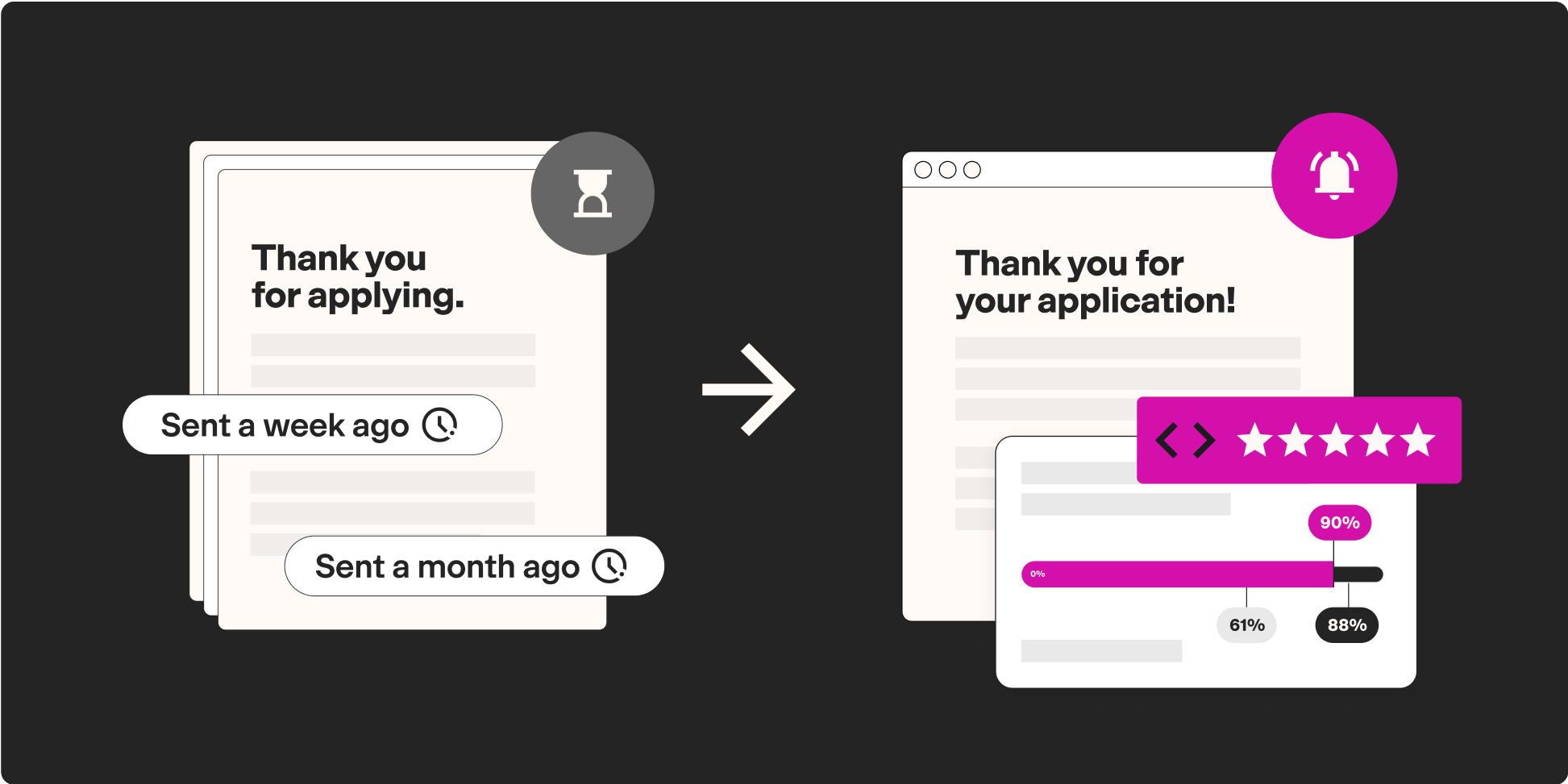Skills assessments help software engineer Nikolay prove his talent to international employers
Over the past fifteen years, Nikolay Andreychuk has built an impressive career in the software industry. He’s worked as a staff engineer and an engineering manager. His experience covers both front- and back-end development. Today, he is a senior engineer at TestGorilla.
Nikolay’s career path might look linear on paper, but the journey to his current role wasn’t so straightforward.
Political instability drove Nikolay to the global job market
When the conflict between Russia and Ukraine erupted, Nikolay and his colleagues were confronted with a harsh reality. They were forced into the international job market for stability and new opportunities.
Unable to lean on recruiters and in-person networks, he looked for relevant positions using a locally circulated list of companies offering remote jobs or the possibility of relocation.
“Sending hundreds of resumes with no response was a really depressing experience. Before this, I’d found good jobs through recruiters who contacted me directly.”
With no reliable information about the employers on the list, Nikolay turned to workplace review platforms like Glassdoor. He used these sites to gauge each business’s reputation based on the feedback of other candidates and employees.
Are you a job seeker?
Visit our job seeker hub to get help with your assessment, find your dream job and more.
He looked at a few key details to determine whether he should apply to a particular organization.
Company culture: If reviews showed that a workplace had high levels of bureaucracy or a culture of micromanagement - it was an immediate red flag.
Minimal reviews: Companies with few or no reviews raised doubts in Nikolay’s mind. Either their employees weren’t engaged enough to review their employer, or they were discouraged from sharing information.
Low ratings: Any organization rated below 4.2 was immediately disqualified.
All that work and no reply?
Despite best efforts, Nikolay still faced considerable challenges during his job hunt. He found that many companies were willing to lie about details like salary range or responsibilities to get the right talent into their applicant pool.
He recalls applying for a software architect role at a company with an eight-stage hiring process consisting of multiple tests, interviews, and take-home assignments. At one point, he remembers taking a 30-minute English-language reasoning test, which he ultimately failed.
“When it comes to these complex problems, non-native speakers like me can find it really difficult to understand the context and respond to the question correctly”
After all his hard work, he discovered that the salary range was far lower than the advertised compensation. It turned out that the company was offering different salaries depending on the region the candidate was from.
Another consistent pain point was slow response times. However, Nikolay sees this as such a common issue that he doesn’t fault employers for it. He says, “Even the best companies have trouble with response rates.”
That said, it was always notable when HR teams responded to applications on the same day and provided quick feedback after each stage of the hiring process.
The best insights on HR and recruitment, delivered to your inbox.
Biweekly updates. No spam. Unsubscribe any time.
Make sure employers have the right tools to measure your skills
Technical interviews, live coding challenges, and take-home assignments are commonplace in the software industry, but not all skills tests are created equal.
Nikolay advises candidates to look for certain telltale signs to determine whether an employer can properly evaluate their skills.
Watch out for complex theoretical questions. These are better suited to the exam room than a practical hiring environment. Instead, he advocates for tests where candidates are given a real-world challenge and offered the tools they need to solve it.
If technical questions focus on outdated technologies that most companies in the sector don't use anymore, then it might be best to wait for more promising opportunities.
When interviewers ask detailed questions about a role's day-to-day realities, it generally means they understand the job requirements well and can hire appropriately.
In general, a lengthy hiring process is unnecessary. As a hiring manager, Nikolay feels that a three to four-step process encompassing an initial skills assessment, an HR interview, and a technical interview featuring members of the prospective department should be more than enough to validate a candidate’s suitability for the role.
The TestGorilla difference
During his job search, Nikolay took TestGorilla assessments twice for roles at two different companies.
Although some of the test questions were difficult, they were well-constructed and aligned with current software engineering trends. He always understood the rationale and relevance behind each one.
In particular, he remembers attempting the logical and verbal reasoning tests, which held his interest throughout.
Although Nikolay admits that he’s not the best test-taker, the overall flow of the assessment allowed him to demonstrate his real-world skills in each of the tested areas.
Benefits of the skills-first approach
Nikolay's work experience was mostly with Russian companies, which made it harder for international firms to recognize his skills. But when he started taking skills assessments, he could clearly show he was just as good as any top candidate worldwide. This helped him overcome any doubts about his background and prove his value.
Nikolay has the following advice for candidates who still prefer a traditional resume-based screening process:
"If you want to find a job at a good company. You may need to send hundreds of applications, often with few responses. And from experience, I can tell you that’s extremely disheartening. With skills assessments, you have a surefire way to separate yourself from the pack and gain real value in a crowded job market”
Looking for a better way to find and apply for remote positions? Our brand-new job board lists several open engineering roles. If you see a role matching your requirements, you don’t have to bother with endless forms and cover letters; just take a skills assessment and determine if your abilities match the description.
You've scrolled this far
Why not try TestGorilla for free, and see what happens when you put skills first.
















